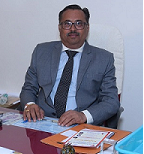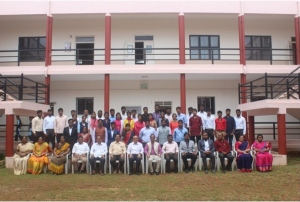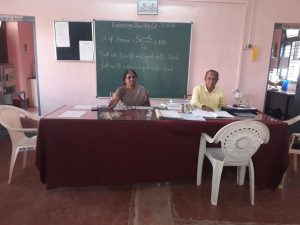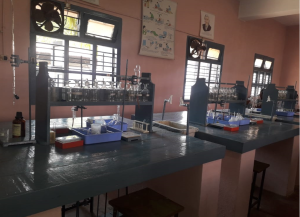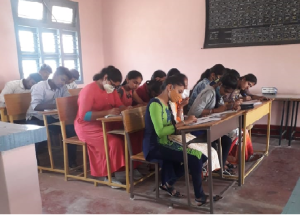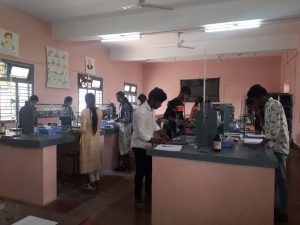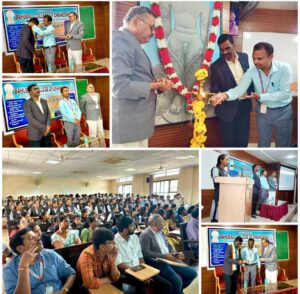
Department of Basic Science and Humanities
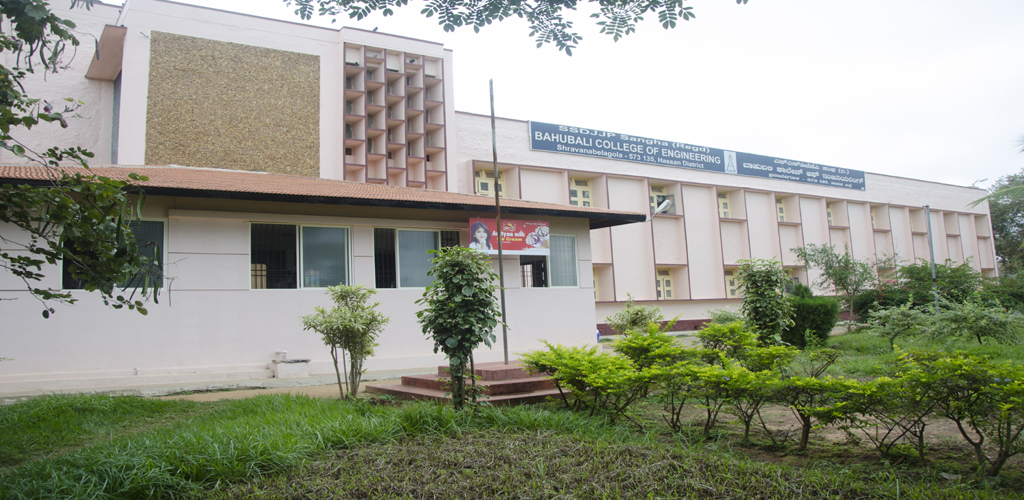
About
The Faculty of the Department of Basic Sciences takes keen interest and works diligently to nurture enthusiasm, curiosity, and passion in the study of fundamental courses such as Physics, Mathematics, and Chemistry, along with their applications in Engineering. To enhance learning and exposure, the Department regularly organizes Faculty Development Programs, Workshops, Seminars, and Guest Lectures by distinguished professors on emerging areas of Science and Technology. Students are encouraged to actively participate in quiz competitions, essay writing, and various cultural activities that help kindle their creativity and innovative abilities. Well-equipped Physics and Chemistry laboratories further support students in carrying out project experiments and practical explorations.
Vision
To build a strong foundation for excellence in knowledge and to foster the growth of the institution into a premier centre of learning by igniting and nurturing enthusiasm, interest, and passion in the study of fundamental courses in Physics, Mathematics, and Chemistry, along with their applications in professional studies as part of the curriculum.
Mission
To effectively deliver analytical and mathematical concepts to engineering students, enabling them to strengthen their innovative and creative skills in their further studies.
To inculcate the habit of logical reasoning and enhance analytical abilities for the design and implementation of novel engineering methods.
PEO1: To provide exposure to emerging technologies, along with adequate training and opportunities to work in teams on multidisciplinary projects, while fostering effective communication skills and leadership qualities.
PEO2: To enable students to develop strong professional skills that prepare them for immediate employment and promote life-long learning in advanced areas of Computer Science and related fields.
PEO3: To encourage graduates to undertake research and pursue professional careers that address the evolving needs of society.
PEO4: To prepare graduates to become entrepreneurs or professionals in industry and government, demonstrating career advancement through significant technical achievements, professional ethics, and expanded leadership responsibilities.
- PO1.Engineering knowledge: Apply the knowledge of mathematics, science, engineering fundamentals, and an engineering specialization to the solution of complex engineering problems.
- PO2.Problem analysis: Identify, formulate, research literature, and analyze complex engineering problems reaching substantiated conclusions using first principles of mathematics, natural sciences, and engineering sciences.
- PO3.Design/development of solutions: Design solutions for complex engineering problems and design system components or processes that meet the specified needs with appropriate consideration for the public health and safety, and the cultural, societal, and environmental considerations.
- PO4.Conduct investigations of complex problems: Use research-based knowledge and research methods including design of experiments, analysis and interpretation of data, and synthesis of the information to provide valid conclusions.
- PO5.Modern tool usage: Create, select, and apply appropriate techniques, resources, and modern engineering and IT tools including prediction and modeling to complex engineering activities with an understanding of the limitations.
- PO6.The engineer and society: Apply reasoning informed by the contextual knowledge to assess societal, health, safety, legal and cultural issues and the consequent responsibilities relevant to the professional engineering practice.
- PO7.Environment and sustainability: Understand the impact of the professional engineering solutions in societal and environmental contexts, and demonstrate the knowledge of, and need for sustainable development.
- PO8.Ethics: Apply ethical principles and commit to professional ethics and responsibilities and norms of the engineering practice.
- PO9.Individual and team work: Function effectively as an individual, and as a member or leader in diverse teams, and in multidisciplinary settings.
- PO10.Communication: Communicate effectively on complex engineering activities with the engineering community and with society at large, such as, being able to comprehend and write effective reports and design documentation, make effective presentations, and give and receive clear instructions.
- PO11.Project management and finance: Demonstrate knowledge and understanding of the engineering and management principles and apply these to one’s own work, as a member and leader in a team, to manage projects and in multidisciplinary environments.
- PO12.Life-long learning: Recognize the need for, and have the preparation and ability to engage in independent and life-long learning in the broadest context of technological change.

